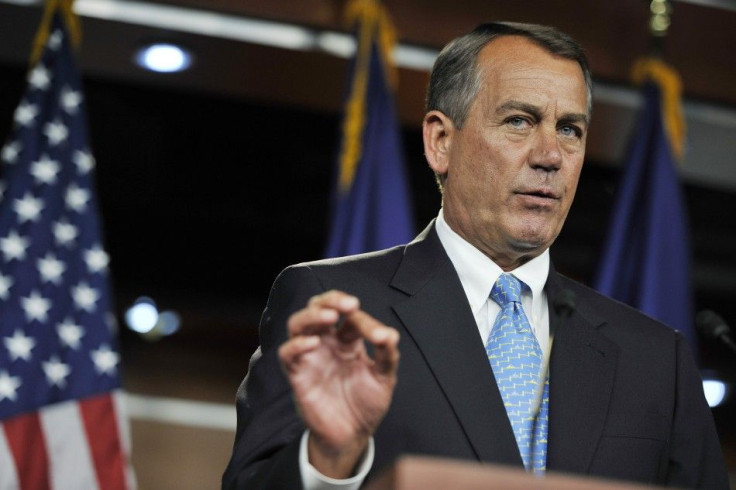Obamacare Repealed By House Republicans: Why It Doesn't Matter

Wednesday afternoon in Washington, the Republican-dominated House of Representatives voted to repeal President Barack Obama's health care plan. While that might sound like a grand gesture, it's in fact the 33rd time the GOP has voted to defund, repeal or completely throw out what it calls Obamacare. Like the first 32 attempts, this one doesn't matter, and in this case defund and repeal really just equates to kicking and screaming.
The Supreme Court's decision to uphold Obamacare's individual mandate, among other parts of the polarizing bill, came down two weeks ago, but the political gamesmanship is still at a fever pitch as the parties ramp up their rhetoric for the election. This time, every Republican in the House, along with five Democrats, supported the repeal, which passed 244-185. Three of the five Democrats who voted for repeal are from conservative-leaning districts, while the other two are retiring this year and reportedly keeping their options open for future runs in states that do not elect liberal Democrats, according to Slate.
The GOP continues to repeal (and repeal and repeal...) the same bill largely for symbolic reasons. In order to actually overturn Obamacare, the Republicans would have to pass a repeal bill in both the House of Representatives and the Senate and then send it to a president willing to sign it, as U.S. News notes. The odds are slim, at best.
The first step of that process is complete, but the second two look to be near impossible at this point.
Senate Democrats currently outnumber Republicans 51 to 47 with two independents, one of them Joe Lieberman of Connecticut, who has voted against the health care bill in the past. As for the executive branch, The New York Times currently has Obama leading Mitt Romney by 11 electoral votes out of 538, with 115 tossup votes.
Still, Americans have shown a reluctance to accept Romney so far and he has come under fire from both the left and right for failing to offer any substantial health care plan as a counter to Obama's. Romney's enactment of an individual mandate as Massachusetts governor also hurts his credibility on what's shaping up to be the biggest issue of the election.
Public opinion on the bill is, well, murky. The Associated Press has a poll via The Huffington Post that finds 47 percent of polled Americans supported the law, another 47 percent were against it, and 3 percent had no opinion. Of those numbers, 33 percent reported wanting Obamacare repealed, 30 percent wanted parts repealed, and 34 percent said they wanted to wait out the process and see what the future holds.
Earlier this month, 50 percent of respondents in a CNN poll approved of the Supreme Court's decision and 49 percent disagreed. Even when the political spin from Republicans and Democrats is removed, the bare numbers show a deeply conflicted electorate.
Chief Justice John Roberts became a villain to conservatives and shocked the country by upholding Obamacare. Instead of kicking the ball through the uprights for the GOP, Roberts spiked the ball in their end zone for the Democrats.
© Copyright IBTimes 2024. All rights reserved.











